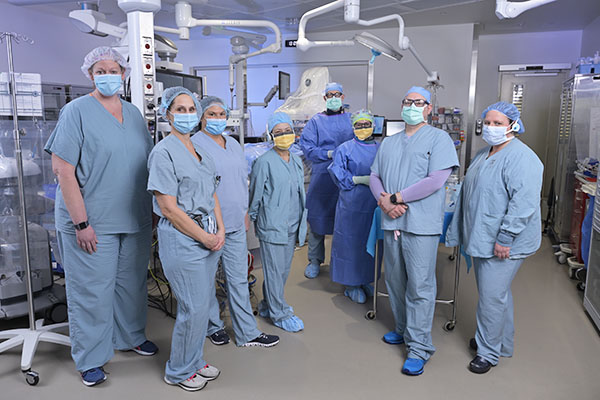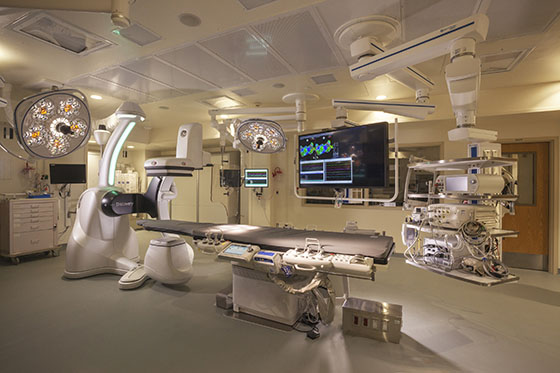
Living with an arrhythmia (irregular heartbeat) can make it difficult to enjoy the things you love. Specialists at The Arrhythmia Program at Chester County Hospital in West Chester, PA, work to restore a normal heart rhythm and help you live a more comfortable life. You can receive Penn Medicine heart care close to home.
What Is Cardiac Arrhythmia?
Arrhythmias are problems that affect the electrical system of the heart muscle, causing a heartbeat that is too fast, too slow or irregular. You may feel your heart “flutter” or feel like it skipped a beat. Other symptoms can include:
- Chest pain
- Dizziness
- Fainting
- Lightheadedness
- Shortness of breath
Many arrhythmias are benign, meaning they do not require urgent treatment, but a fluttery feeling can also signal a life-threatening condition. Learn More about Cardiac Arrhythmias.
What Are the Types of Abnormal Heart Rhythms?
There are many different types of irregular heartbeats, and the type and severity will influence your treatment. You may feel like your heart is beating too fast, a condition known as tachycardia, or like it is beating too slowly, called bradycardia. Common arrhythmias include:
How We Treat Irregular Heartbeat
At Chester County Hospital, our Penn cardiologists and electrophysiologists are skilled in treating arrhythmias. Depending on your situation, your physicians may recommend:
- Prevention
- Medication
- Atrial Fibrillation ablation
- Atrial Flutter Ablation
- Implantable Cardioverter Defibrillator (ICD) Implantation
- Pacemaker Implantation
- Premature Ventricular Complexes (PVC) Ablation
- Supraventricular Tachycardia (SVT) ablation
- Ventricular Tachycardia (VT) Ablation

WATCHMAN™ Device
The irregular heartbeat caused by AFib can cause blood clots to form. If blood clots travel outside the heart through the bloodstream, they can cause a stroke. The traditional treatment for preventing clots in patients with AFib is warfarin, a common blood-thinner that may cause unpleasant and challenging side effects.
The WATCHMAN device is an alternate treatment option for some patients with AFib. Penn surgeons use a catheter (a thin, flexible tube) to insert the small, umbrella-like device in the left atrial appendage to prevent blood clots from forming there. Benefits of the WATCHMAN device include:
- Reduced risk of stroke by preventing blood clots from forming in the left atrial appendage
- Minimally invasive procedure that does not require open-heart surgery
- Typically a quicker and easier recovery than with open surgery. Most patients leave the hospital one day after the procedure and return to normal activity within a week
Request an Appointment
Call 800-789-7366 (PENN) to speak to one of our heart and vascular experts. You can also request an appointment using our online form.